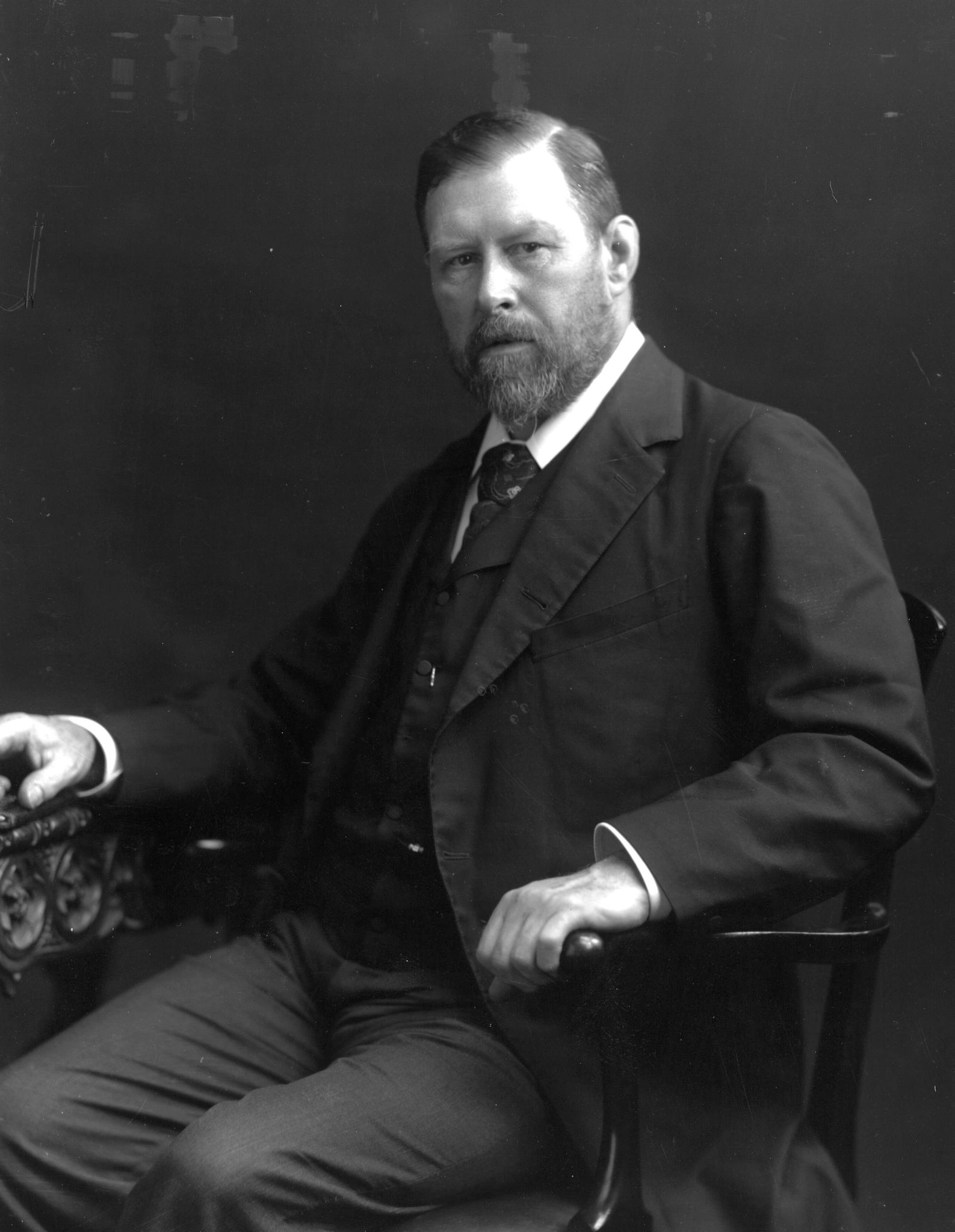
Bram Stoker
Abraham "Bram" Stoker (8 November 1847 – 20 April 1912) was an Irish author who is best known for writing the 1897 Gothic horror novel Dracula. During his lifetime, he was better known as the personal assistant of actor Sir Henry Irving and business manager of the West End's Lyceum Theatre, which Irving owned.
Bram Stoker
Abraham Stoker
8 November 1847
Clontarf, Dublin, Ireland
20 April 1912 (aged 64)
Pimlico, London, England
Novelist
1
In his early years, Stoker worked as a theatre critic for an Irish newspaper, and wrote stories as well as commentaries. He also enjoyed travelling, particularly to Cruden Bay in Scotland where he set two of his novels. During another visit to the English coastal town of Whitby, Stoker drew inspiration for writing Dracula. He died on 20 April 1912 due to locomotor ataxia and was cremated in north London. Since his death, his magnum opus Dracula has become one of the best-known works in English literature, and the novel has been adapted for numerous films, short stories, and plays.[1]
Early life[edit]
Stoker was born on 8 November 1847 at 15 Marino Crescent, Clontarf in Dublin, Ireland.[2] The park adjacent to the house is now known as Bram Stoker Park.[3] His parents were Abraham Stoker (1799–1876) from Dublin and Charlotte Mathilda Blake Thornley (1818–1901), who was raised in County Sligo.[4] Stoker was the third of seven children, the eldest of whom was Sir Thornley Stoker, 1st Baronet.[5] Abraham and Charlotte were members of the Church of Ireland Parish of Clontarf and attended the parish church with their children, who were baptised there.[6] Abraham was a senior civil servant.
Stoker was bedridden with an unknown illness until he started school at the age of seven, when he made a complete recovery. Of this time, Stoker wrote, "I was naturally thoughtful, and the leisure of long illness gave opportunity for many thoughts which were fruitful according to their kind in later years." He was privately educated at Bective House school run by the Reverend William Woods.[7][8]
After his recovery, he grew up without further serious illnesses, even excelling as an athlete at Trinity College, Dublin, which he attended from 1864 to 1870. He graduated with a BA in 1870, and paid to receive his MA in 1875. Though he later in life recalled graduating "with honours in mathematics", this appears to have been a mistake.[9] He was named University Athlete, participating in multiple sports, including playing rugby for Dublin University. He was auditor of the College Historical Society (the Hist) and president of the University Philosophical Society (he remains the only student in Trinity's history to hold both positions), where his first paper was on Sensationalism in Fiction and Society.
Stoker at The London Library[edit]
Stoker was a member of The London Library and conducted much of the research for Dracula there. In 2018, the Library discovered some of the books that Stoker used for his research, complete with notes and marginalia.[31]
Beliefs and philosophy[edit]
Stoker was raised a Protestant in the Church of Ireland. He was a strong supporter of the Liberal Party and took a keen interest in Irish affairs.[7] As a "philosophical home ruler", he supported Home Rule for Ireland brought about by peaceful means. He remained an ardent monarchist who believed that Ireland should remain within the British Empire, an entity that he saw as a force for good. He was an admirer of Prime Minister William Ewart Gladstone, whom he knew personally, and supported his plans for Ireland.[37]
Stoker believed in progress and took a keen interest in science and science-based medicine. Some of Stoker's novels represent early examples of science fiction, such as The Lady of the Shroud (1909). He had a writer's interest in the occult, notably mesmerism, but despised fraud and believed in the superiority of the scientific method over superstition. Stoker counted among his friends J. W. Brodie-Innis, a member of the Hermetic Order of the Golden Dawn, and hired member Pamela Colman Smith as an artist for the Lyceum Theatre, but no evidence suggests that Stoker ever joined the Order himself.[38][39][40] Although Irving was an active Freemason, no evidence has been found of Stoker taking part in Masonic activities in London.[41] The Grand Lodge of Ireland also has no record of his membership.[42]
Commemorations[edit]
On 8 November 2012, Stoker was honoured with a Google Doodle on Google's homepage commemorating the 165th anniversary of his birth.[46][47]
An annual festival takes place in Dublin, the birthplace of Bram Stoker, in honour of his literary achievements. The 2014 Bram Stoker Festival encompassed literary, film, family, street, and outdoor events, and ran from October 24 to 27 in Dublin.[48][49] The festival is supported by the Bram Stoker Estate[50] and funded by Dublin City Council and Fáilte Ireland.